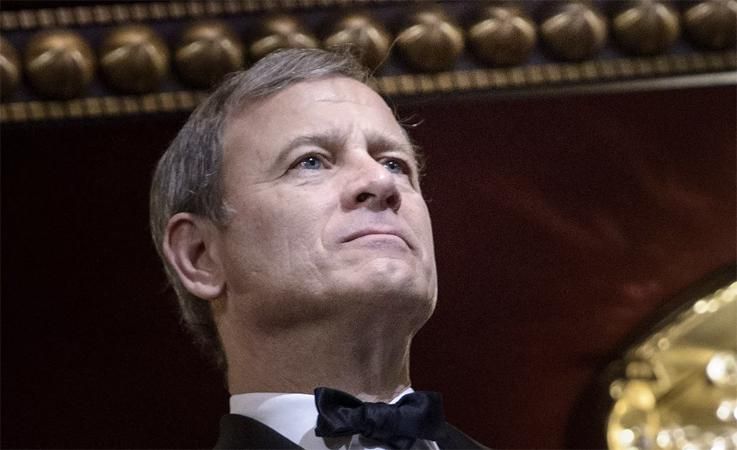"Mueller, She Wrote" podcaster Allison Gill took to Twitter on Tuesday to highlight the importance of the Supreme Court ruling in Moore v. Harper. But, as Slate legal scholar Richard Hasen explained, it could set the U.S. up for future meddling from the High Court.
"I don’t think most Americans know that we came within two votes of losing our democracy today, and they’ll continue to use their sacred votes to elect people who would appoint judges that would have otherwise canceled their votes," Gill wrote after the decision was published.
While Hasen agrees with her point, he is also warning that "the Supreme Court has now set itself up, with the assent of the liberal justices, to meddle in future elections, perhaps even deciding the outcome of future presidential elections (as it has done in the past). Chief Justice John Roberts drove a hard bargain."
The basics, he explained, are that the North Carolina legislature, which launched the legal challenge that reached the Supreme Court, is controlled by Republicans who drew their own congressional maps to benefit Republicans.
The North Carolina Supreme Court blocked the legislature from its aggressive gerrymandering scheme. The legislature then sued under the theory that the Elections Clause of the Constitution, which says state legislatures may, where Congress has not intervened, decide the "The Times, Places and Manner of holding Elections for Senators and Representatives." It means that state legislatures would have blanket power to decide all election and representation rules, and can even ignore state courts that try to overrule them.
"The court made clear that legislatures do not have this free-floating power, and that one must understand the legislature’s power within the ordinary system of state government, including judicial review," Hasen said. "Even more, the Court reaffirmed a 2015 ruling that was decided just 5-4 before three of the newer conservative justices joined (in which the chief justice had dissented), confirming that states do not violate this theory when they use voter initiatives to create independent redistricting commissions to draw congressional lines. That’s another reason for celebration."
Where he has concerns, he explained, is part of the majority opinion in which Chief Justice John Roberts says that the Supreme Court will have the last say in election disputes.
"State courts may not transgress the ordinary bounds of judicial review such that they arrogate to themselves the power vested in state legislatures to regulate federal elections," the majority writes. The three liberal justices signed off on it.
It brings back the first election of the 21st century: Bush v. Gore, in which the Florida Supreme Court ordered a recount of certain ballots to determine if Al Gore was, in fact, the winner. Bush appealed the ruling to the U.S. Supreme Court, and a majority decided that a recount "violated the Equal Protection Clause because there was no guarantee that uniform standards were used or could be used to conduct it."
"It is this milder version of the independent state legislature theory that the court embraced in Moore," he warned. At the time, the law said that it was only to be applied to the Bush case and only the Bush case.
"But Justice Kavanaugh, in a concurrence, endorsed the Rehnquist approach and said that in engaging in this second-guessing, federal courts need to compare election law in the state in earlier decisions," Hasen wrote. "The greater the deviation, the more likely to find a violation of the independent state legislature theory."
What has been left unresolved, he explained, is a new option to "rein in especially voter-protective rulings of state courts." Any state voting rights law will yield to a federal lawsuit.
"It’s going to be ugly, and it could lead to another Supreme Court intervention in a presidential election sooner rather than later. Moore gave voters a win today, but it sets up a Supreme Court power grab down the line," he closed.
Leave a Comment
